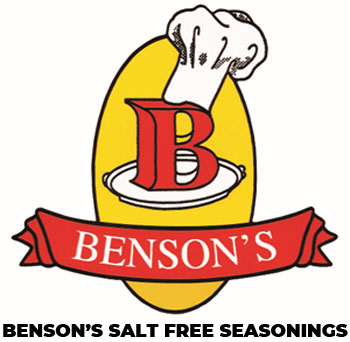For many people a salt substitute means more than just cutting down on their intake of salt, it is a medical necessity. There are a number of diseases which can be aggravated by too much salt in the diet. Those dealing with high blood pressure or hypertension, Meniere’s disease, diabetes, dialysis, just to name a few health issues who need to eat a low sodium diet. Having a salt substitute that does not aggravate their condition while providing a salty taste, a good flavor and preferably no potassium chloride, plays an important part in the success of their diet.
A big problem for people who must go on low sodium diet plans is that they often do not stick to them fully. One issue is that salt is present in many different types of foods, either naturally or added, and many foods that do not contain salt are very bland. It’s understandable that eating bland food on a daily basis can quickly lead to cheating and consuming more salt to satisfy the craving for tasty food. Another issue is that most salt substitutes contain potassium chloride which many doctors do not recommend using, as it carries other effects that can be just as harmful as salt.
Here are a few fairly common medical conditions where a low sodium diet is required. For people who are either suffering from or at risk of these conditions, finding a salt substitute can be quite beneficial in getting rid of the bland taste and enhancing a healthy diet.
High Blood Pressure or Hypertension
We all know there are risks associated with having high blood pressure and that condition is further aggravated by a high daily intake of salt or sodium. Salt can not only work against the medications designed to lower high blood pressure which can lead to stroke and cardiovascular disease, salt has also been shown to raise blood pressure. Finding a salt substitute can help reduce high blood pressure when combined with a low sodium diet and exercise.
Diabetes
Controlling diabetes means more than having insulin injections or taking medications. It also means exercising, losing weight and eating healthy which should include a low sodium diet. It’s not about just watching out for sugar; it is also about watching out for too much salt. Diabetics should use salt-free products as these help provide more flavor which can aid in helping diabetics stick to a more healthy diet. Losing excess fat and maintaining normal weight is vital for controlling the effects of diabetes, and using a salt substitute takes you one step closer towards reaching that goal.
Dialysis
We don’t often think of the effects that too much salt or sodium in the diet have for those who may suffer from kidney disease or renal failure. Those, who are undergoing dialysis treatments, must maintain a very strict diet that is low sodium, low potassium and low phosphorus, in order to maintain or improve their health. Kidney dialysis patients know that finding a salt substitute and salt-free products that do not include potassium chloride is not easy, but when found they can help their diet.
A low sodium diet is good for everyone. Having a selection of salt-free seasonings and a salt substitute to use at home means you can have safe, tasty, all-natural flavors that add a little boost to your meals and make even simple fare such as popcorn come alive with flavor. This not only leads to more enjoyment of your food and life, but helps you stick long-term to a healthy, low sodium diet.
